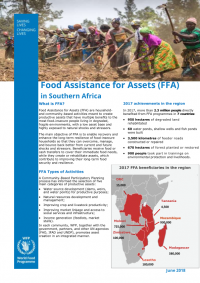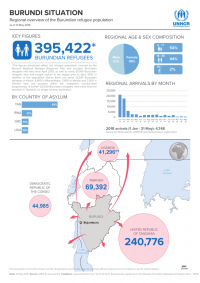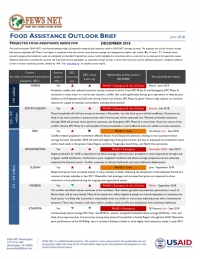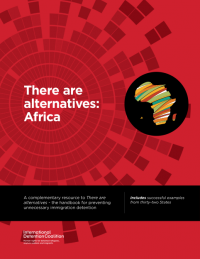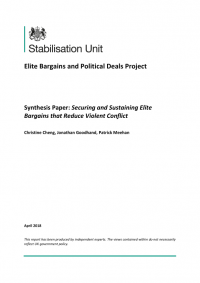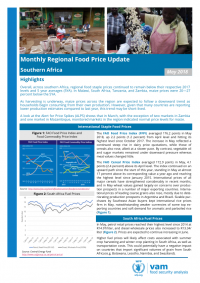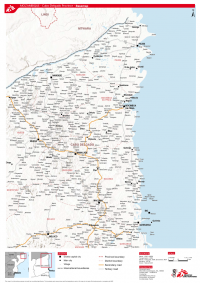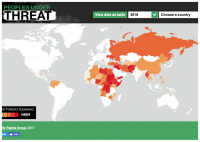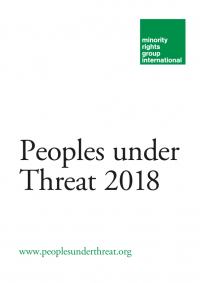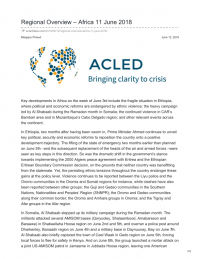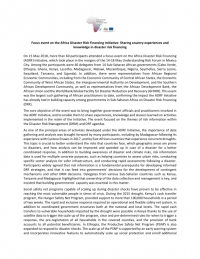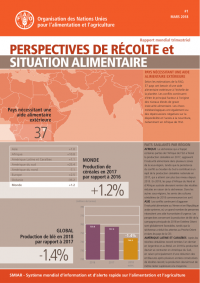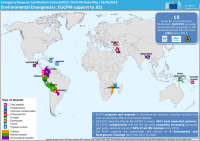Mozambique
Disasters
- Southern Africa: Armyworm Infestation - Jan 2017
- Southern Africa: Floods - Jan 2017
- Southern Africa: Food Insecurity - 2015-2017
- Mozambique/Malawi: Cholera Outbreak - Feb 2015
- Southern Africa: Floods - Jan 2015
- Tropical Cyclone Hellen - Mar 2014
- Mozambique: Floods - Jan 2013
- Tropical Storm Irina - Mar 2012
- Mozambique: Storms and Floods - Jan 2012
- Southern Africa: Floods - Jan 2011
What is FFA?
Food Assistance for Assets (FFA) are householdand community-based activities meant to create productive assets that have multiple benefits to the most food-insecure people living in degraded, fragile environments, with a low asset base and highly exposed to natural shocks and stressors.
*The figures presented reflect the refugee population covered by the Burundi Regional Refugee Response Plan and includes Burundian refugees who fled since April 2015, as well as some 37,000 Burundian refugees who had sought asylum in the region prior to April 2015. In addition to the population above, there are some 13,200 Burundian refugees in Kenya, 4,800 in Mozambique, 3,600 in Malawi and 2,500 in Zambia who are assisted within the respective country-level programmes. A further 23,000 Burundian refugees, who have lived for decades in Tanzania, no longer receive assistance.
39 Dead, More Than 1,000 Displaced in Recent Attacks
(Johannesburg) – Attacks by armed groups in Mozambique’s northern province of Cabo Delgado have killed at least 39 people and displaced more than 1,000 since May 2018. Hundreds of families fled their villages after suspected members of an armed Islamist group burned down their houses during nighttime attacks.
PROJECTED FOOD ASSISTANCE NEEDS FOR DECEMBER 2018
Guide for policy makers
This report provides an overview of alternatives to immigration detention in Africa. Drawing from examples in 32 African countries, the report highlights some of the measures in place that contribute to the effective and humane governance of migration, while avoiding the use of unnecessary immigration detention.
African policy makers are facing both internal and external pressure to manage migration more effectively. The research undertaken for this report demonstrates that:
Study points to new ways to reduce conflict in fragile states
A major research project by the UK's Stabilisation Unit explores the vital role of political deal-making in reducing violent conflict.
The Elite Bargains and Political Deals research indicates that greater focus on the politics of conflicts, and those who control power and resources on the ground, is crucial to reducing violence.
The Minister for the Middle East and for International Development Alistair Burt said:
Highlights
Overall, across southern Africa, regional food staple prices continued to remain below their respective 2017 levels and 5 year averages (5YA). In Malawi, South Africa, Tanzania, and Zambia, maize prices were 20—27 percent below the 5YA.
As harvesting is underway, maize prices across the region are expected to follow a downward trend as households begin consuming from their own production. However, given that many countries are reporting lower production estimates compared to last year, this trend may be short-lived.
SADC and Maputo should be very concerned about the spike in terrorist-type violence.
BY PETER FABRICIUS
A sudden upsurge in brutal violence in northern Mozambique, including the beheadings of women and children, has sounded alarms that a violent jihadist movement like Boko Haram or al-Shabaab could be evolving. Since October last year, over 50 people have been killed in about 20 attacks in Cabo Delgado province on the Tanzania border.
About this map
The Peoples under Threat ranking highlights countries most at risk of genocide and mass killing. The ranking is created by compiling data on the known antecedents to genocide or mass political killing.
The threat of mass killing, genocide and other violence is rising in countries where governments are resorting to repressive measures to suffocate dissent, according to new data analysis by Minority Rights Group International (MRG) and the Ceasefire Centre for Civilian Rights.
Key developments in Africa on the week of June 3rd include the fragile situation in Ethiopia, where political and economic reforms are endangered by ethnic violence; the heavy campaign led by Al Shabaab during the Ramadan month in Somalia; the continued violence in CAR’s Bambari area and in Mozambique’s Cabo Delgado region; and other relevant events across the continent.
![]() Eric Morier-Genoud, Lecturer in African history, Queen's University Belfast
Eric Morier-Genoud, Lecturer in African history, Queen's University Belfast
Mozambique’s Cabo Delgado province is being held to ransom by an Islamist guerrilla movement. After months of skirmishes between police and members of the Al Sunnah wa Jama’ah, the region has now erupted into full violence.
On 15 May 2018, more than 60 participants attended a focus event on the Africa Disaster Risk Financing (ADRF) Initiative, which took place in the margins of the 14-18 May Understanding Risk Forum in Mexico City. Among the participants were 40 delegates from 14 Sub-Saharan African governments (Cabo Verde, Ethiopia, Ghana, Kenya, Lesotho, Madagascar, Malawi, Mozambique, Nigeria, Seychelles, Sierra Leone, Swaziland, Tanzania, and Uganda).
Mogadishu 8 June 2018. The Government of Somalia has this week signed up to a regional marine partnership initiative to ensure the sustainability of the livelihoods, environment and resources of the Western Indian Ocean. Eight other countries in the region are taking part in the initiative – Comoros, Kenya, Madagascar, Mauritius, Mozambique, Seychelles, South Africa, and Tanzania.
Amnesty International calls for swift action to protect villagers from killings
At least 37 people have been killed in the past two weeks
Les problèmes liés au pâturage et les répercussions du conflit sur le commerce de bétail contribuent à faire augmenter les souffrances liées à la faim chez les éleveurs ouest-africains
STORY HIGHLIGHTS
Cities where infrastructure has not kept pace with population growth face challenges of exposure and vulnerability to droughts, flooding and tropical cyclones
With IDA support, Beira city improved urban planning and strengthened resilience, reducing risks of flooding by an estimated 70% and benefiting 300,000 people
15 times EU Civil Protection Mechanism (EUCPM) provided environmental expertise to UN Environment/OCHA Joint Unit (JEU) since 2014.
• EUCPM prepares and responds to environmental disasters, including incidents that arise as secondary effects of a natural disaster.
• DG ECHO, operating through the EUCPM, is among JEU’s most important partners.
• DG ECHO's collaboration with the JEU has been constantly increasing during the past years, raising at a level of 50% of all JEU missions since 2016.
Cities and villages in northern and central India, Bangladesh, Myanmar, southern Madagascar and southern Mozambique are facing acute water scarcity threatening the lives and livelihoods of millions, new analysis by WaterAid shows.
Based on NASA satellite imagery released earlier this year, the analysis also examines current rates of access to water for rural and urban areas in most-affected regions.

